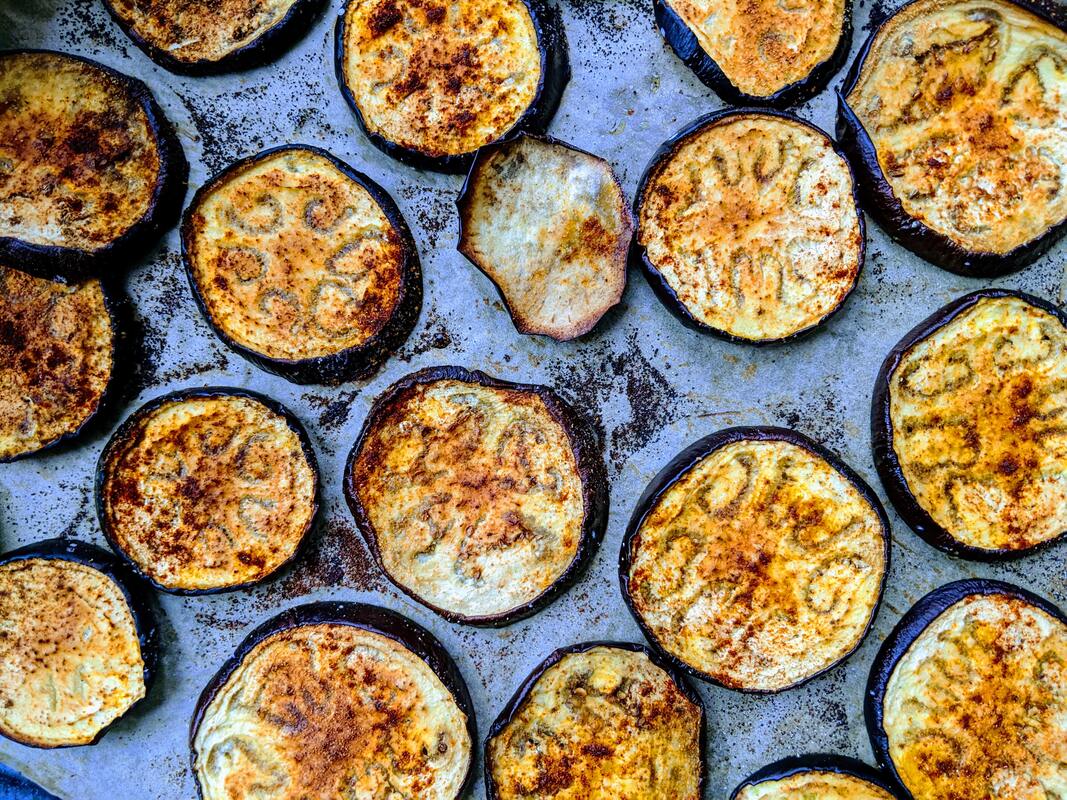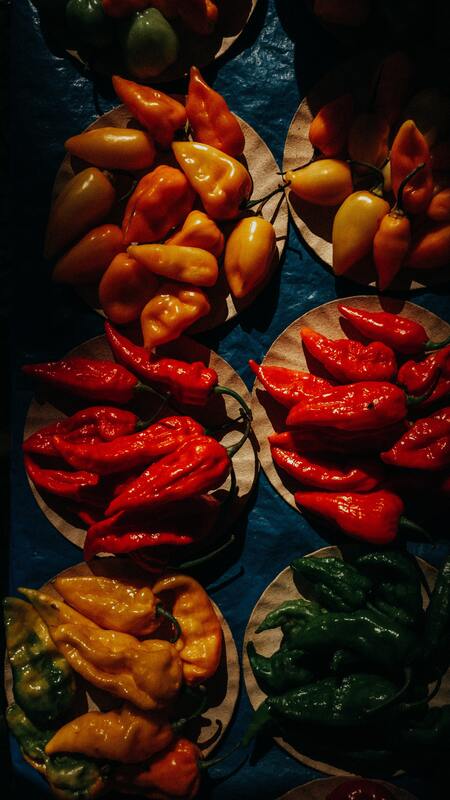|
Nightshades are a fascinating family of over 2,000 species of plants including: Ashwagandha, Bell peppers (aka sweet peppers), Bush tomatoes, Eggplant, Goji berries, Ground cherries , Hot peppers (such as chili peppers, Jalapenos, habaneros, chili-based spices, red pepper, and cayenne pepper), Paprika, Pepino (aka pepino melon), Pimentos, Potatoes (but not sweet potatoes), Tomatillos, & Tomatoes While many nightshades are tasty, many are quite deadly, like the notorious Locoweed (Datura stramonium) or Belladonna (Atropa belladonna). Nightshade sensitivity is an underlying cause in many inflammatory conditions today, particularly those including: muscle and joint pain, morning stiffness, arthritis, insomnia, heartburn, GERD, and autoimmunity. Along with soy, many common nightshades are relatively new to the Western and European diets, not arriving to North America until the 18th century. In fact, the tomato was initially used only as an ornamental plant because it was believed to be poisonous like some of its relatives. Despite their relative new-ness to the Western diet, nightshades are everywhere today: french fries, mashed potatoes, tomatoes, pizza, hot sauce, and let’s not forget tobacco. Here’s why you might want to reduce or avoid these powerful plants all together for a period of time: 1. They are “calcinogenic”. This means they can cause soft tissues to calcify (calcinosis) due to their positive effect on blood calcium levels. The body does not like high blood calcium, so the quickest way to remedy this situation is to deposit the extra calcium into the soft tissues. Each hypercalcemic episode lasts only a few moments but also leaves a small deposit behind. Over time, these deposits lead to the condition known as calcinosis, contributing to hardening of the vasculature. 2. They contain acetylcholinesterase inhibitors. Solanine and similar glycoalkaloids found in nightshades inhibit the breakdown of the neurotransmitter acetylcholine. This causes extended muscle contractions and a major reason why those sensitive to nightshades experience morning stiffness. Solanine also disturbs digestive function (common in IBS-sufferers), gene expression of intestinal cells, and inhibits proteolytic enzyme activity. 3. They contain nicotine, a substance that is both addictive and inhibits proper inflammation in the body when out of balance.
And let's not forget saponins... 5. Saponins can poke holes in your gut - All plants contain saponins, but Nightshades are quite high in an especially corrosive class of them. Saponins are detergent-like compounds that protect plants from predation by dissolving cellular membranes. This is great for protecting the plant’s seeds from predation, but not so great when those saponins damage the cells that line our gut (enterocytes). Saponins can literally poke holes through our cells’ protective walls, creating a case of leaky gut. Essentially, the holes allow things to pass through that shouldn’t be in our bloodstream. While some saponins are beneficial and allow for the absorption of certain minerals without harming the cells, others can be more corrosive and damaging to our intestinal wall. Glycoalkaloids, abundant in Nightshades, are one such class of saponins that aren’t so gentle. Glycoalkaloids (alpha-solanine and alpha-chaconine in potato, alpha-solanine in eggplant, and alpha-tomatine in tomato) are very well studied and have revealed issues with absorption and inflammation in many animal studies. For people dealing with systemic inflammation, autoimmune conditions, and issues with digestion, taking a break from Nightshades is a wise choice. The low-level toxic exposure from glycoalkaloids can aggravate the issues we are trying to resolve. Resources:
In, F. T. A., Out, F. T. A., & Reintroductions, P. ALL ABOUT NIGHTSHADES. McFarland, E. (2013). The Link between nightshades, chronic pain and inflammation. GreenMedInfo LLC. Robertson, P., & Roberts, P. (2003). The Solanaceae and their paradoxical effects on arthritis and other degenerative disease states Comments are closed.
|
Eileen Brantley & Amy WrightWe are Herb Girls Athens, LLC. Read our blog! Archives
November 2022
Categories
All
|





 RSS Feed
RSS Feed
